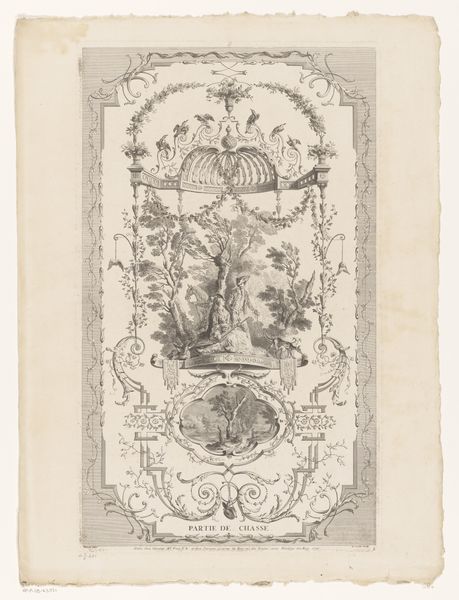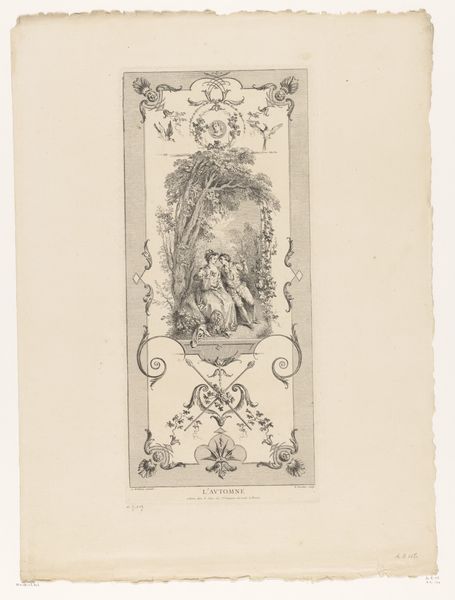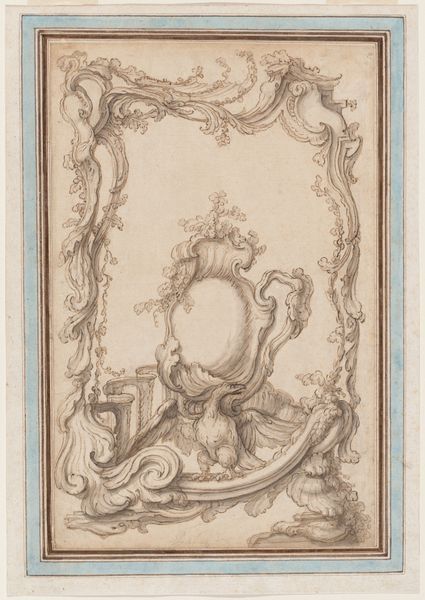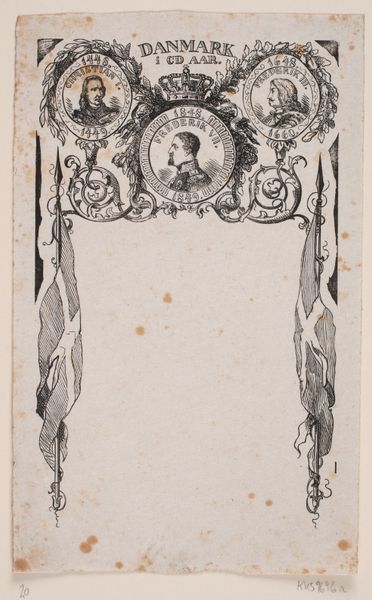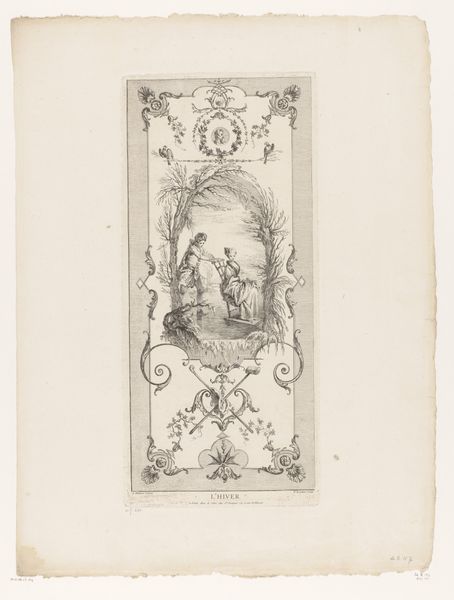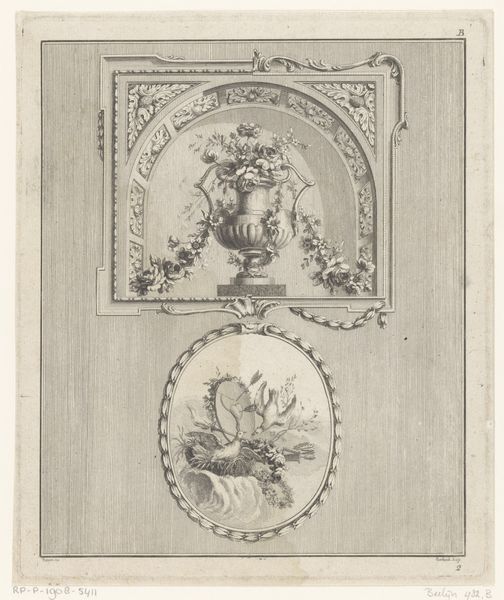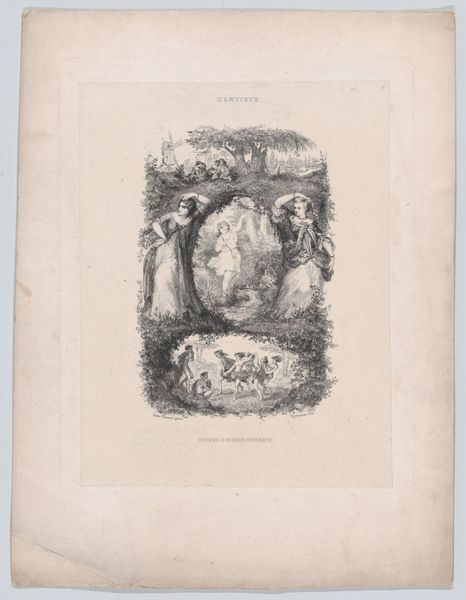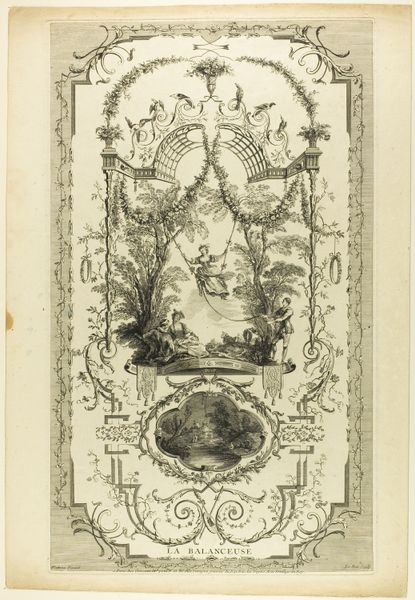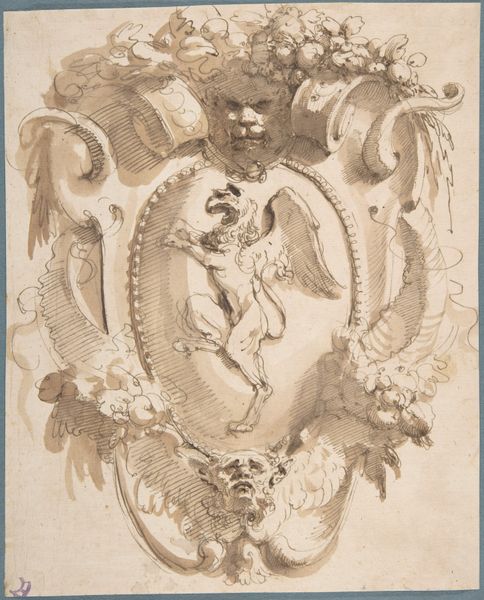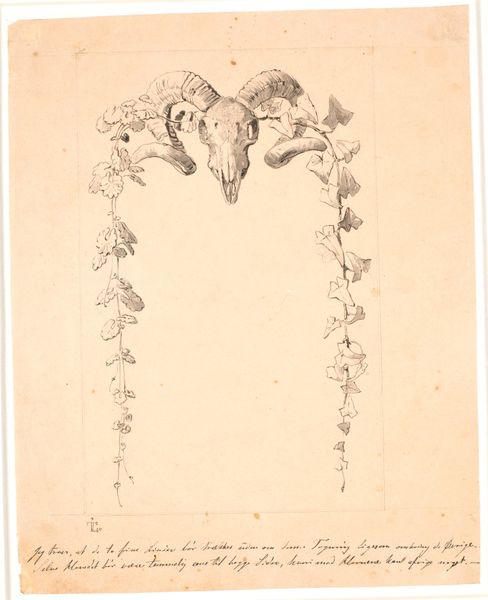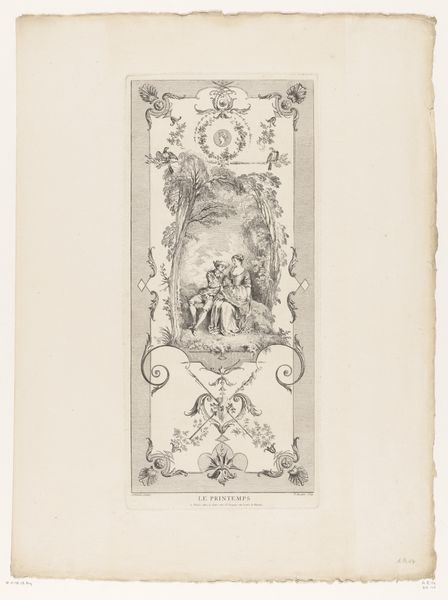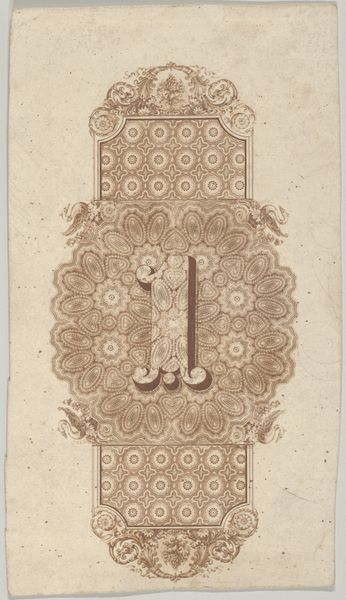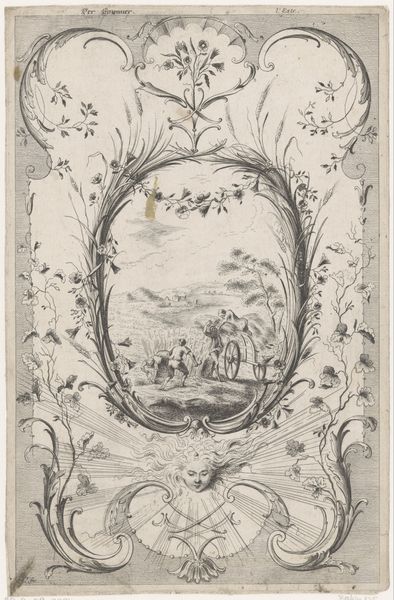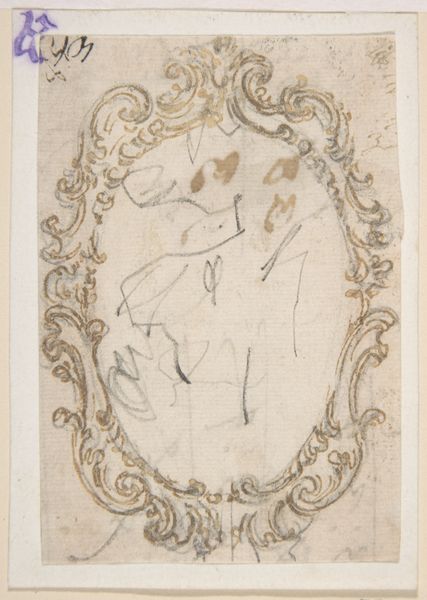
drawing, print, etching, engraving
#
portrait
#
drawing
#
neoclacissism
#
water colours
# print
#
etching
#
watercolour illustration
#
engraving
Dimensions: Height: 20 1/2 in. (52 cm) Width: 14 3/4 in. (37.4 cm)
Copyright: Public Domain
Editor: Here we have Joseph Jean Bernard's "Profile portrait of a woman," created in 1781, using etching, engraving, and watercolor. There's a formality to this work, with the decorative frame surrounding the subject's profile. What strikes you most about this piece? Curator: The sitter's elaborate hairstyle and delicate lace trimming signal privilege, a clear visual marker of social status in pre-revolutionary France. However, it’s more than just a pretty picture. Considering Bernard's position within the French court, how might this image serve as a tool for social and political negotiation? What’s its role, for instance, in shaping our perception of female power during this period? Editor: That's interesting. I hadn't considered the political aspect. It seems very controlled, almost staged. Curator: Precisely. The controlled aesthetic reflects the strict social codes of the time, yet simultaneously, the rise of Neoclassicism allowed artists to allude to republican virtues such as modesty and integrity. Does this image offer a critique, or simply a portrait of the status quo? Perhaps both. It speaks to the inherent contradictions within the ruling class on the eve of revolution. The woman's averted gaze seems almost hesitant. Editor: I see what you mean. It makes me wonder about the artist's intention, especially knowing the revolution was just around the corner. This controlled depiction highlights the constraints placed upon women of the time. I guess looking closer, there’s much more to it than initially meets the eye. Curator: Exactly. It’s these underlying narratives, intersecting with historical context, that truly bring the artwork to life, enabling a richer and more nuanced understanding of art’s significance.
Comments
No comments
Be the first to comment and join the conversation on the ultimate creative platform.
